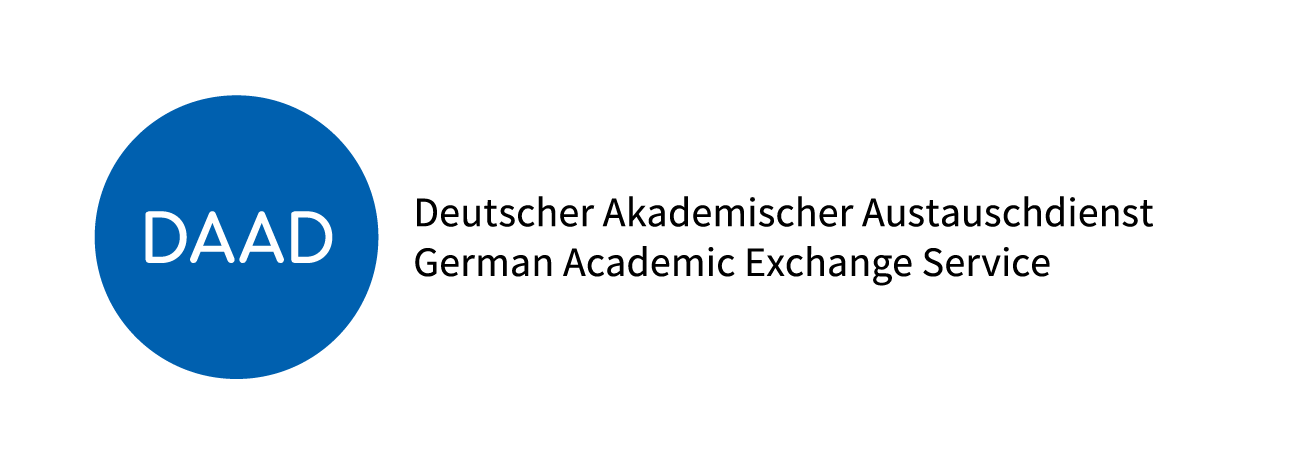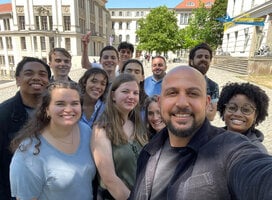Study Abroad Programs in Germany
Germany has long been a popular destination to study abroad. It has more than 300 institutions of higher education throughout the country, has a fascinating history, and is relatively affordable. Study abroad in Germany and you can learn or improve your German language skills, get international business experience with an internship, or work at a startup.
Many students also choose to study abroad in Germany for its central location and ease of transport to neighboring countries.
Germany's contributions to western culture through the arts, business, technology, and research still continue to be celebrated today. Now a multicultural society, we hope you feel inspired by Germany's successes and choose to study abroad in Germany.
Although you could certainly spend your time studying abroad in a smaller German city, the most popular destinations include:
Berlin
Known as a cultural powerhouse, the city of Berlin is robust with museums, cultural sights, theaters, restaurants, and night clubs. Berlin has frequently hosted unique festivals, concerts, and art exhibitions, and is the epicenter of the recently unified nation. Lovers of creativity will find Berlin to be mesmerizing. Full of both historic and modern architecture, you can see Germany's diverse populations here first-hand.
Munich
Located in the southern part of Germany, this big city offers more than just an annual beer fest. Home to the largest student population in the country, you and your friends can spend your free time exploring some of Germany's most beautiful gardens, decorated orchestras, and Baroque architecture. Known for being a friendly city, Munich is an unforgettable city in Germany's Bavarian-influenced region.
Frankfurt
Frankfurt has become a economic powerhouse for western Germany with a booming business center. This metropolis is steeped with history, and the skyline of its financial district simply enchants. Shopping and jazz are also a mainstay in Frankfurt culture – it’s said that the city center's Zeil is the busiest retail street in all of Germany! Sip on locally brewed apple wine as you soak in this big city's small town feel.
Language
While English may be the most prominently used language in business, it is actually German that surges ahead as the most commonly spoken first language in Europe. It is spoken in the neighboring countries of Austria, Switzerland, Italy, and Belgium, as well as the smaller nations of Lichtenstein and Luxembourg. Want to see Europe on a grander scale? Prioritize studying German while you are in Germany, and take advantage of any available language classes or tutoring opportunities outside of your program's offering.
Housing in Germany
Some students opt to live with other students participating in their study abroad program, building relationships with friends from their home university or from their home country. Other students prefer living in international student dormitories, as the environment is cosmopolitan, challenging, and inspiring. Still other students swear by homestays for more cultural immersion and support for language acquisition.
Regardless of where you decide to live, feel motivated to take advantage of opportunities to expose yourself to the local culture. Some programs will give you many options for your living preference, such as CEA's Berlin program. Other programs, such as IES Abroad's semester in Freiburg already organize living in a private suite with German or international roommates.
If you have to organize your housing independently (which is typical if you directly enroll in a program), you can find furnished student apartments across Germany through UniPlaces.
Immersion and Cultural Activities
Germany has a plethora of museums, forests, and small cities all worth visiting. While some students prefer to organize these excursions on their own, some do not even know where to start.
That's where programs step in. Some study abroad providers will do the work for you -- planning events and weekend activities to complement your studies. For example, GlobaLinks allows students to select up to three different cultural activities in addition to the included four.
Reflect on your degree of interest in being responsible for organizing your own activities. Sometimes, it is nice to have another person do all the planning so you can just enjoy, while other times you are taken to a place you would not have liked to go in the first place. Familiarize yourself with activity schedules so you can make the right decision.
Be sure to check out the DAAD (German Academic Exchange Service) for more information on how to select a program!
Language and Customs
Germans are known for being hardworking and efficient - you will not find afternoon naps or late arrivals in this work-oriented nation. Its dedication to timeliness is seen best in the punctuality of its transit system (a tip that will come in handy if you're running a little late for your weekend train!)
The Renaissance played an important part in Germany's history and continues to be influential today, as many famous pieces by Rembrandt, Van Gogh, and Monet, among others, can be found in one of Germany's abundant museums. Even contemporary modern art has made a name for itself, with pop artists like Warhol and Lichtenstein proudly showcased.
Since financing all of those weekend jaunts to nearby places or second servings of sausage may cost a pretty penny, these scholarship may be worth applying to help offset your costs.
- German Academic Exchange Service (DAAD): Offers various types of scholarships, grants, and fellowships for study and research in Germany; support ranges from 3-week courses to support for an entire degree program.
- Congress - Bundestag Youth Exchange Program: This all-inclusive scholarship program facilitates cultural exchange for American and German young adults in a variety of fields, and is a year long program that includes support for intensive language instruction, university classes, and a related internship.
- As a non-profit, the various USAC study abroad scholarship opportunities aim for students to gain international experience -- without breaking the bank.
- More Study Abroad Grants and Scholarships
Study Abroad Programs in Germany
Pagination

Funding Opportunities to Study in Germany Through DAAD
The German Academic Exchange Service, known by its acronym DAAD in German, is an organization that offers various scholarships and research grants to study in Germany for all academic levels and fields. If you've ever considered studying in Germany, check out the informational page DAAD and Go Overseas have created together to provide comprehensive overview on studying in Germany.
What People Are Saying
Related Study Abroad Articles
Frequently Asked Questions
-
What is it like living in Germany?
Living in Germany can offer huge variations in your day-to-day experiences. In addition to a relatively low cost of living, Germany can offer cultural festivals, mountainous landscapes, sandy beaches, and bustling cities for teachers.
-
Is living in Germany expensive?
Compared to other European nations, the cost of living in Germany is quite reasonable, needing around $1,000 a month to cover all living expenses, including rent. Berlin is recognized as one of the most affordable capital cities on the continent.
-
Do I need a visa to study in Germany, and how hard is it to get?
Most international students will need a visa to study in Germany and possibly a residence permit too. Visit the website for your nearest German Consulate or Embassy to learn more about specific requirements for your country.
Related Content -
Can I have a job while I’m studying in Germany?
It depends on your nationality, but most students can work limited amounts while studying in Germany. Check with the International Office at your university to be sure, and visit Study in Germany for more information.
-
How easy is it to make friends with locals while studying in Germany?
Depending on the length of your academic program in Germany, you may be able to make a lot of German friends. Make sure you check student groups and sport opportunities on campus, or offer language tutoring. You can also see if you can volunteer in your host city.
-
How can I study in Germany for free?
Germany welcomes students from across the world to study at public universities and not pay any tuition fees (except the state of Baden-Wuerttemberg charges 1500 EUR per semester). If you are from outside the EU, you will be required to get a residence permit before moving to Germany to study. The non-commercialized approach to education in Germany has broad public support, and the economic benefits from international students coming to Germany to pursue higher education far exceed the costs. Of course, there are costs above and beyond tuition that students must cover, like room, board, and transportation expenses. Additionally, students will have to cover admin charges every semester, but this will be less than 500 USD and it does include a public transportation pass for the region and many student discounts.
Related Content -
Are there scholarships to study in Germany?
There are a variety of scholarships available to international students who study in Germany. The DAAD website has a great deal of information about scholarships.
-
What resources should I use to improve my German skills before studying in Germany?
Whether you are fluent in German or just starting to learn the language, you can study in Germany. The DAAD website offers resources to help you improve your German language skills before arriving in Germany.
Related Content -
What are my chances for finding work in Germany once I’ve finished my studies?
There are opportunities for both work placements and post-graduate employment in Germany and the rest of Europe. Consult the DAAD website to learn more about the requirements and your chances of finding work after studying in Germany.
-
What do I need to know about student housing while I study in Germany?
For most programs, you will need to arrange your own student accommodation. With support from your German university, you should be able to find a room to rent either close to campus or in the host city. DAAD has an accommodation database for you to find a place to stay short or long-term.










































